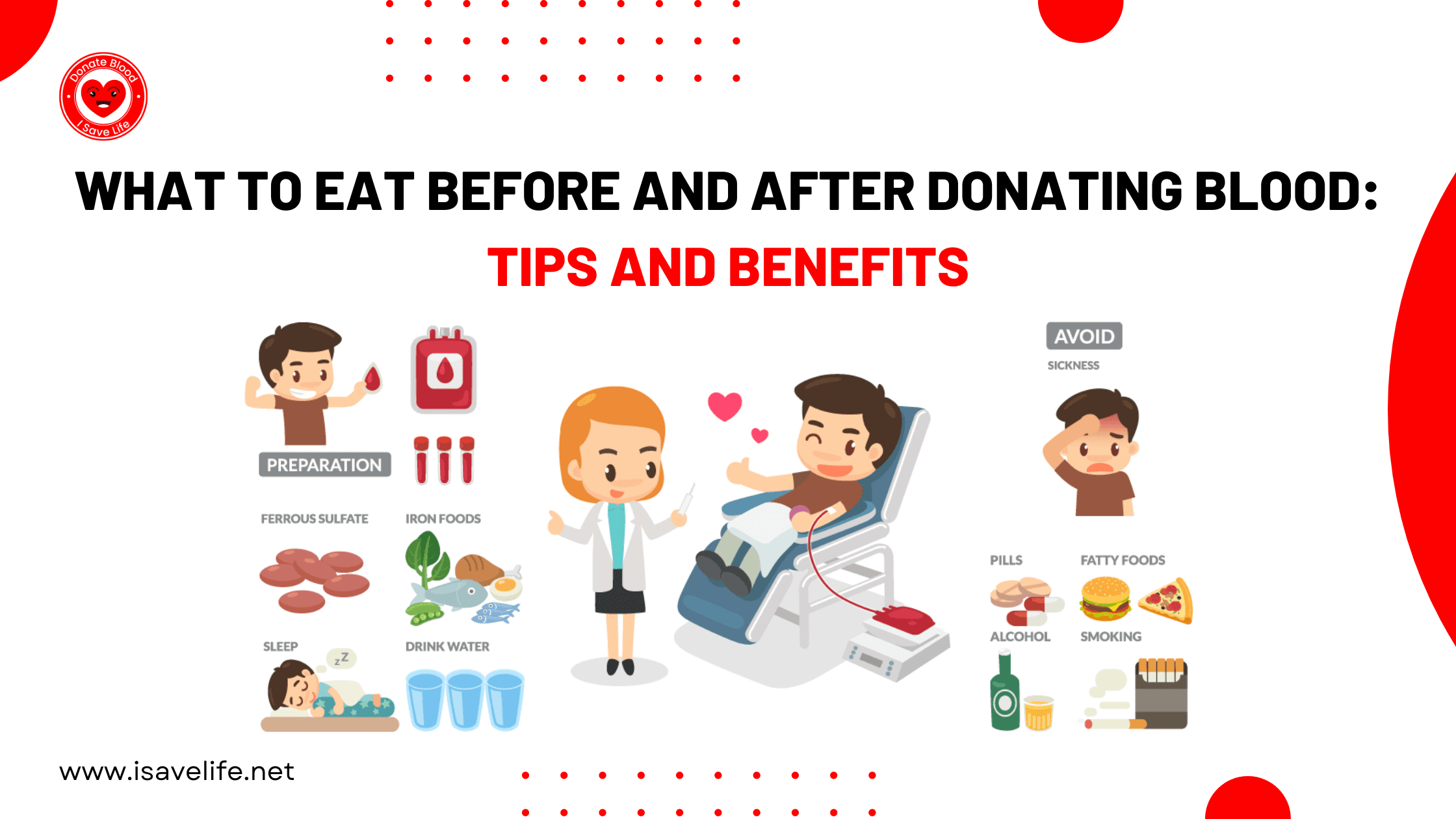
What to Eat Before and After Donating Blood: Tips and Benefits
29-May-2023
What to Eat Before and After Donating Blood: Tips and Benefits
Blood is a vital part of our body that helps a person live. An average human body contains about four to six liters of blood depending upon the gender and physical structure of an individual. This is why blood donation is imperative to save a person who has lost excessive blood due to an injury or accident. Losing excessive blood is life-threatening, but when extract in small amounts, our body is able to replenish the blood loss in a few weeks. Because of this fact, donating blood is considered absolutely safe, and with proper guidance, you can intake vital foods to replenish blood and stay healthy.
Benefits of Donating Blood
Reduce Risk of Cancer: As per many studies, cancer is caused by free-radical damage in a person’s body. Donating blood helps to keep your blood regulated and you can avoid cancer-related to the lungs, liver, throat, etc.
Reduced Chances of Heart Diseases: Observations have found that people donating regularly have 88% fewer chances of getting heart disease. The major cause of heart disease in most of the cases is cholesterol and by donating blood, you can replenish your blood which eventually reduces the overall cholesterol in the blood.
Helps you Burn Calories: It is not a solution to lose weight, but blood donation is effective in burning calories. A pint of blood donation can help you burn around 650 calories. It doesn’t make you weak, but rather refreshed when new blood cells start circulating and oxygen reaches all your body parts better.
Free Blood Screening: Before every blood donation, the donor’s blood is tested. It works as a regular health checkup which helps you detect any illness symptoms at early stages.
What to Eat Before Donating Blood
If you are willing to donate blood for a good cause, then it is necessary that you stay in a healthy state too. Here are a few foods that you can include in your diet if you are going to donate blood.
Iron-Rich Foods: Donating blood lead to a reduction in iron levels in your body, and iron plays a vital role in our body by carrying oxygen to all the parts of the body when it flows with the blood. To make sure that you don’t get weak, eat iron-rich foods like red meat, lamb, green leafy vegetables, etc.
Food Rich in Vitamin C: Citric fruits, such as oranges, has a high amount of Vitamin C, a compound that helps absorb the iron in our body. Green leafy vegetables, tomatoes, or kiwi, are a good source of vitamin C.
Stay Hydrated: Drink plenty of water to regulate your blood pressure. If your water levels are low, you will feel dehydrated and the medical clinic may refuse to your blood donation request.
What to Avoid: Avoid alcohol, smoking, and eating fat-containing foods. These things don’t get dissolved easily and remain in the blood for a long time.
What to Eat After Donating Blood
In this section learn about what you should eat after donating blood to avoid any kind of illness or weakness.
Drink Plenty of Water: Keep your body hydrated to ensure that blood pressure remains regulated.
Eat Iron-Rich Foods: The iron levels in the body drop slightly after donating blood, for which one should include green leafy vegetables, red meat, fish, apricots, etc. in their diet.
Intake Vitamin C: Similar to before donating blood, keep a routine of eating citric fruits and juices to maintain vitamin C in your body.